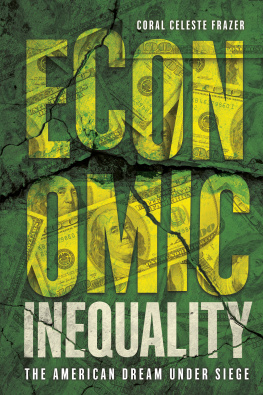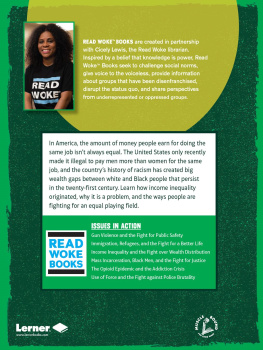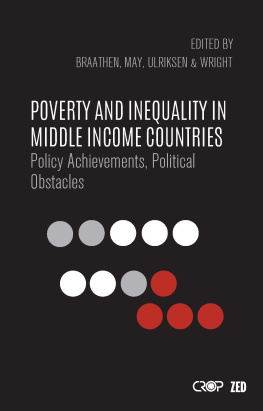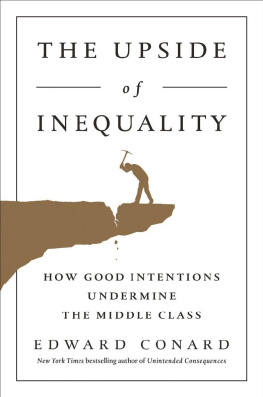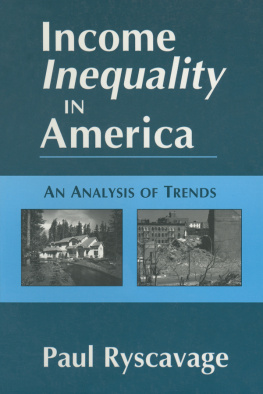Equal Is Un fair
Americas Misguided Fight against Income Inequality
Don Watkins and Yaron Brook

St. Martins Press
New York
Thank you for buying this St. Martins Press ebook.
To receive special offers, bonus content, and info on new releases and other great reads, sign up for our newsletters.

Or visit us online at us.macmillan.com/newslettersignup
For email updates on Don Watkins, click here.
For email updates on Yaron Brook, click here.
The author and publisher have provided this e-book to you for your personal use only. You may not make this e-book publicly available in any way. Copyright infringement is against the law. If you believe the copy of this e-book you are reading infringes on the authors copyright, please notify the publisher at: us.macmillanusa.com/piracy .
The Defining Challenge of Our Time?
A few years ago, one of the authors of this book, Yaron Brook, was invited to give the keynote address at the Virginia Republican Party State Convention. Heres how he started.
I was not lucky enough to be born an American citizen. I became an American citizen by choice. I immigrated to this country. I was born and raised in Israel. I served in the Israeli military where I met my wife of twenty-seven years. And when we got married, after we had fought for our country, we sat down and said, you know, you only live once and we want to make the most of our lives, we want to be someplace where we can enjoy freedom, where we can make the most of the life that we have, where we can pursue our happiness, where we can raise our children to the best of our ability. And we looked around the world. We werent committed to any particular place, so we looked around the world and we said, Where are we going to go? We chose this country because America is the greatest nation on earth, and really is the greatest nation in human history.
Of all the questions Yaron considered before he made his decision, one that never came up was how much economic inequality there was in America. Like millions before him, Yaron came to America seeking to make a better life for himself and his family: he wanted to experience the American Dream, in which he would be free to set his own course and rise as far as his ability and ambition would take him. Would that put him in the top 1 percent or the bottom 10 percent of income earners in America? It would never have occurred to him to ask, and if someone had asked him, his answer would have been: Who cares?
Yaron is not unique in this regard. Polls consistently show that inequality is very low on Americans list of concerns. Even people who live in rural Michigan and struggle to make their mortgage payments apparently dont care that, hundreds of miles away in New York, a handful of hedge fund managers fly on private jets and dine at Nobu. What we do care deeply about is the opportunity to make a better life for ourselvesand we are more likely to celebrate the fact that this allows some people to succeed beyond their wildest dreams than lose sleep over it.
But hardly a day goes by in which we arent told that our attitude toward economic inequality is wrongthat even if we dont care about inequality in and of itself, we should care, because it threatens the American Dream. In one of his most celebrated speeches, President Obama declared that the defining challenge of our time is a dangerous and growing inequality and lack of upward mobility that has jeopardized middle-class Americas bargainthat if you work hard, you have a chance to get ahead.
Obama is hardly a lone voice on this issue. Nobel Prizewinning economist Joseph Stiglitz writes of the large and growing inequality that has left the American social fabric, and the countrys economic sustainability, fraying at the edges: the rich [are] getting richer, while the rest [are] facing hardships that [seem] inconsonant with the American Dream.
In his 1931 book The Epic of America, James Truslow Adams introduced the phrase the American Dream into the lexicon, referring to that dream of a land in which life should be better and richer and fuller for everyone, with opportunity for each according to ability or achievement. The American Dream is about opportunity the opportunity to pursue a better life, where ones success depends on nothing more (and nothing less) than ones own ability and effort, and where, as a result, innovators can come from nowhere to spearhead limitless human progress.
On the face of it, that dream would seem to entail enormous inequality: in a land where there are no limits on what you can achieve, some will earn huge fortunes, many will earn a decent living, and others will fail for one reason or another. Yet critics insist that economic inequality is at odds with the American Dream. Their specific arguments vary, but they all boil down to three general claims: in one way or another, inequality conflicts with economic mobility, economic progress, and fairness.
1. Inequality vs. Mobility. The best proxy for opportunity, according to the critics, is economic mobility. There are different ways of assessing mobility, but however you measure it, they say, the fact is that if youre born poor in America, chances are youll stay poor, and if youre born rich, youll probably stay rich. Some critics argue that rising inequality is a result of the same forces that are limiting mobility, such as the decline of unions or the minimum wage. Others paint inequality as a cause of declining mobilityciting, for instance, the ability of affluent Americans to send their children to exclusive schools that poorer parents cannot afford. In many cases, the connection between rising inequality and declining mobility is never fully spelled out: we are simply told that, for instance, the highly unequal United States has less economic mobility than our counterparts in Europe, and that we can increase mobility by molding ourselves in the image of European social welfare states.
2. Inequality vs. Progress. According to the critics, economic inequality is at odds with economic progress. The dominant view is that the last forty years have been marked by a startling rise in income and wealth inequality, as the rich got richer and the poor and middle class stagnated. Some argue that this rising inequality is a telling symptom of underlying economic problems, such as tax and regulatory policies that favor the rich. Others claim inequality causes economic progress to slow, citing statistical correlations between high inequality and lower growth. Explanations for how inequality slows growth are all over the map, ranging from the claim that it reduces consumer spending, supposedly the driving force of economic growth, to the claim that inequality makes workers less happy and therefore less productive.
3. Inequality vs. Fairness. One of the reasons we value opportunity is that it reflects our commitment to fairness. We believe that a persons level of success should be tied to merit, and that if you lie, cheat, or stealor simply make dumb decisionsyour privileged position shouldnt protect you from failing. But rising inequality, the critics claim, is at odds with fairness.
Sometimes the claim is that inequality undermines fairness by giving the rich the power to rig the political system in their favor. Ordinary folks cant write massive campaign checks or hire high-priced lobbyists and lawyers to secure policies that tilt the playing field in their favor at everyone elses expense, President Obama tells us.
Often, however, the underlying message is that economic inequality, at least beyond a certain point, is inherently unjust. In Obamas words, The top 10 percent no longer takes in one-third of our income [as they did prior to the 1970s ] it now takes half. Whereas in the past, the average CEO made about 20 to 30 times the income of the average worker, todays CEO now makes 273 times more. And meanwhile, a family in the top 1 percent has a net worth 288 times higher than the typical family, which is a record for this country. These ratios, the president assumes, are self-evidently unjustifiable.
Next page

